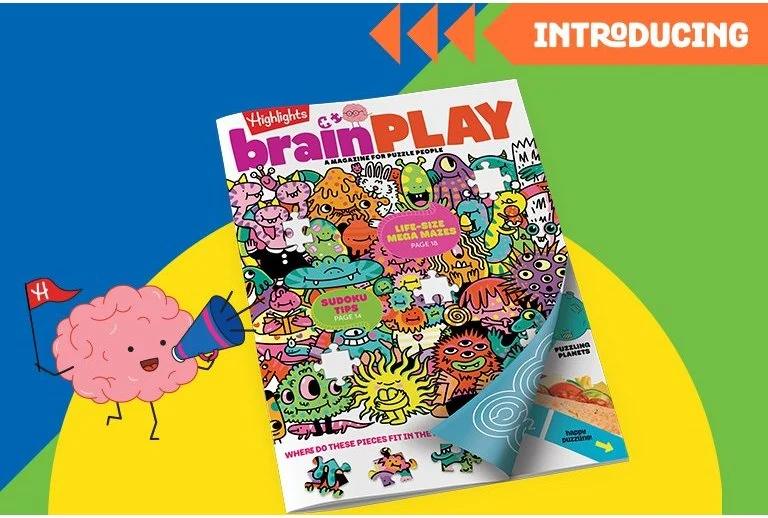Table of Contents
- Introduction to Puzzle Hobbies
- The Cognitive Benefits of Puzzles
- How Puzzles Enhance Problem-Solving Skills
- The Stress-Relief Benefits of Puzzle Solving
- Different Types of Puzzle Books and Magazines
- How to Choose the Right Puzzle for You
- Puzzles as a Social Activity
- Conclusion: Make Puzzles Part of Your Routine
Introduction to Puzzle Hobbies
Puzzle magazines and books have long been celebrated as a unique form of entertainment that captivates minds across generations. Whether you’re drawn to the clever clues of a crossword or the mathematical intricacies of sudoku, puzzles offer a mental workout that’s hard to resist. For those eager to immerse themselves in the world of puzzles, you can click here to explore a wide array of options that cater to every skill level and interest.
The allure of puzzle magazines and books lies in their variety and ability to provide both challenge and relaxation. While technology has brought us digital adaptations, the tactile pleasure of flipping through a puzzle book or penning solutions on paper remains unrivaled. This traditional hobby transcends age, providing a sense of accomplishment and joy that few other leisure activities can claim.
The Cognitive Benefits of Puzzles
Engaging with puzzles consistently is like taking your brain to the gym. Each puzzle you solve works out different parts of your cognitive functions, building memory, boosting concentration, and enhancing mental agility. According to Harvard Health Publishing, activities such as puzzles are a proactive way to maintain mental sharpness as you age. By pushing your brain to think differently, puzzles help forge new neural connections that keep your mind resilient and adaptable.
Research indicates that regularly participating in puzzle-solving activities can contribute to a longer life with a sharper mind. Furthermore, puzzles are known to delay cognitive decline and may even stave off dementia and Alzheimer’s disease. This makes them entertaining and essential in fostering a healthy mind throughout your life.
How Puzzles Enhance Problem-Solving Skills
At their core, puzzles are about problem-solving. Whether it’s a riddle that demands lateral thinking or a logic puzzle requiring deduction, puzzles encourage you to explore multiple angles and perspectives. The mental processes involved in solving puzzles are similar to those employed when tackling real-world problems, honing your ability to break down complex issues into manageable parts.
As explored by Scientific American, the problem-solving skills gained from puzzles transcend into daily life, teaching persistence and fostering innovative thinking. The ability to approach problems with a flexible mindset is invaluable in workplaces and personal situations, making the regular practice of solving puzzles a significant contributor to personal development.
The Stress-Relief Benefits of Puzzle Solving
Finding ways to reduce stress is crucial in an era of hustle and bustle. Puzzles offer a perfect respite—a moment to pause and focus on the task, engaging your mind fully and leaving little room for outside worries. This absorption in the activity can lead to a meditative state, promoting relaxation and reducing anxiety.
Many people find that buddymagazine puzzles provide a satisfying rhythm that calms the mind. The repeated patterns and the sense of control over elements on a page bring peace. During high-stress periods, dedicating even a few minutes to solving puzzles can have a noticeable positive impact on mood and mental clarity.
Different Types of Puzzle Books and Magazines
The world of puzzles is wonderfully diverse, catering to varied interests and skill sets. Here’s a look at some popular types:
- Crosswords: Loved for their ability to expand vocabulary and test general knowledge. Solvers not only enhance their language skills but also learn new facts.
- Sudoku: Perfect for math enthusiasts, these puzzles bolster logical reasoning and numerical acumen.
- Logic Puzzles: These challenge the mind to think critically and reach conclusions methodically.
- Word Searches: Simple yet effective in improving focus and pattern recognition, increasing attention to detail.
Puzzle books often combine these types, ensuring there’s always something new to tackle, preventing monotony, and keeping engagement levels high.
How to Choose the Right Puzzle for You
Choosing the right puzzle involves understanding your interests and assessing your skill level. Beginners might prefer straightforward puzzles to build confidence before moving on to more intricate challenges. Consider factors such as theme, size, and difficulty when selecting a puzzle, ensuring it’s neither easy nor frustrating.
Puzzle enthusiasts often enjoy experimenting with different styles to discover what captivates them most. Remember, the purpose of solving puzzles is to enjoy the process as much as the solution.
Puzzles as a Social Activity
While puzzles are traditionally a solo endeavor, they also offer fantastic opportunities for social interaction. Whether joining a local puzzle-solving club or organizing a puzzle night at home, these activities provide a platform for connecting with others who share your passion.
Social puzzle-solving encourages teamwork and communication. Collaborating on a challenging puzzle can enhance relationships, creating a shared sense of achievement when the puzzle is completed. Such gatherings also allow for the exchange of strategies and tips, enriching the experience for everyone involved.
Conclusion: Make Puzzles Part of Your Routine
Integrating puzzles into your routine can significantly benefit your mental health and personal well-being. Their cognitive, emotional, and social benefits make them an excellent addition to daily life, whether commuting, unwinding at home, or seeking a stimulating weekend activity.
The joy of puzzle-solving is timeless and universal. By dedicating time to this rewarding hobby, you cultivate a sharp but also agile and creative mind, ready to take on life’s myriad challenges. Embrace puzzles as part of your lifestyle and relish the journey of continuous mental growth and relaxation.

